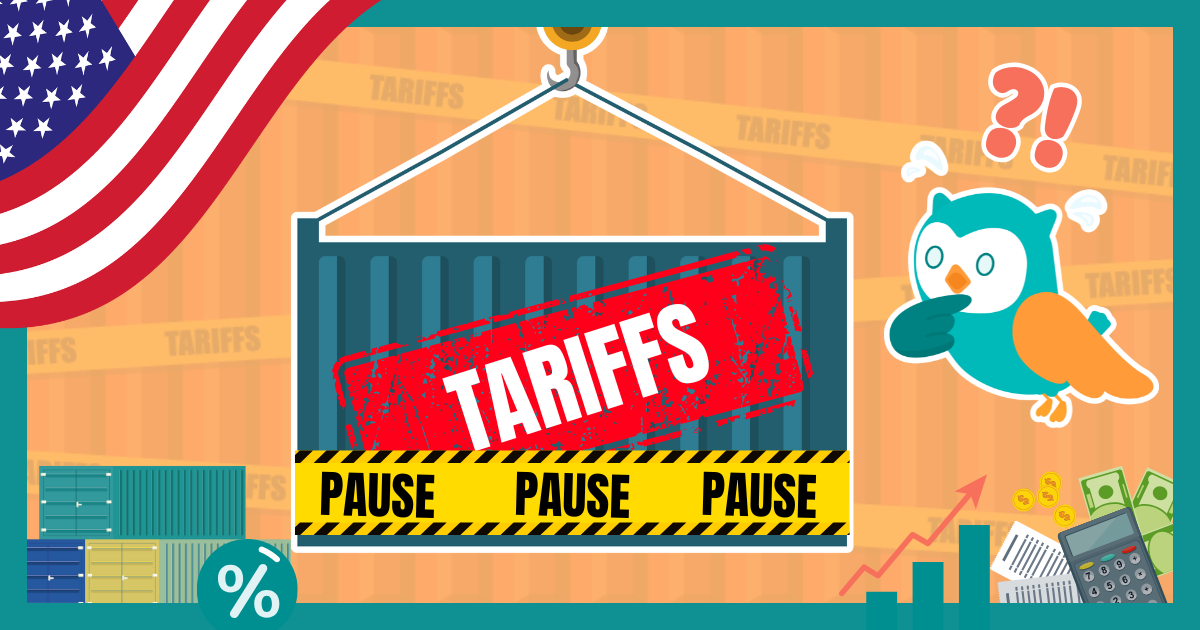Note: It was announced in November 2023 that MoneyOwl will be acquired by Temasek Trust to serve communities under a re-purposed model, and will move away from direct sale of financial products. The article is retained with original information relevant as at the date of the article only, and any mention of products or promotions is retained for reference purposes only.
______________
A bearish market outlook causes a rise of anxiety amongst investors. However, our investment team shares how markets will recover and why you need not sweat over this.
(6 June 2022 – 10 June 2022)
Last week, major stock indexes S&P 500 and MSCI World Index fell 5.04% and 4.94% respectively, with the S&P 500 posting the ninth negative weekly result out of the past ten. MoneyOwl’s 100% equity portfolio was relatively resilient, falling by 3.34%. In Fixed Income, the Bloomberg Barclay Global Agg Index fell 1.5% and the US 10-Year Treasury Yield rose 19 bps to 3.15%. The S&P 500 is currently in a technical bear market with a >20% decline since an all-time high in Jan 2022.
Stocks and bonds were hit hard as most of last week’s decline came on Friday following the release of a monthly report on inflation (Consumer Price Index), which was worse than most economists had expected. Surging energy and food prices were key drivers of May’s increase in the Consumer Price Index to an annual rate of 8.6% – the highest since December 1981.
As markets go into technical bear market territory, it represents how we are living in a time of extreme uncertainty and the anxiety that comes along with it. Against the backdrop of war, humanitarian crises and economic hardship, it’s natural to wonder what effect these world events will have on our long-term investment performance.
While these challenges certainly warrant our attention and deep concern, they don’t have to be a reason to panic about markets when you’re focused on long-term investing. Take yourself back 25 years ago to the year 1997…
- J.K. Rowling just published the first Harry Potter book.
- General Motors released the EV1, an electric car with a range of 60 miles.
- The internet is in its infancy, Y2K looms, and everyone is worried about the Russian financial crisis.
A stranger with a crystal ball offers to tell you what’s going to happen over the course of the next 25 years…
- Asian contagion
- Russian default
- Tech collapse
- 9/11
- The “lost decade” of stocks
- Great Recession
- Global pandemic
- Second Russian default
Would you have invested in the stock market knowing the events above were going to take place? In addition, would you stay invested? Would you have gotten into the market or gotten out? Would you have increased your equity holdings or decreased them?
In reality, from January 1997 to December 2021, the US stock market returned, on average, 9.8% a year.
A dollar invested at the beginning of the period would be worth about $10.25 at the end of the period. These returns are very much in line with what returns have been over the history of the stock market. How can that be? Simply, the market is doing its job. It’s science.
Investing in the stock market is always uncertain. Uncertainty never goes away. If it did, there wouldn’t be a stock market. It’s because of uncertainty that we have a positive premium when investing in stocks vs. relatively less risky assets. In our opinion, reaping the benefits of the stock market requires being a long-term investor. By investing in a market portfolio, you’re not trying to figure out which stocks are going to thrive, and which aren’t going to be able to recover. You’re betting on human ingenuity to solve problems.
The pandemic was a big blow to the economy. However, people, companies and markets adapt. Whatever the next blow we face, have faith that humanity will meet the challenge in ways we can’t forecast. It is never wise to predict what might happen in the next 25 years. Rather, we stand firm in believing that the best investment strategy going forward is to keep in mind the lessons learned from that stranger back in 1997: Don’t panic. Invest for the long term.
In other noteworthy news this week…
Fed on Inflation and US Consumer Sentiment
With inflation continuing to run hot, Federal Reserve policymakers are widely expected to approve an interest rate increase of at least 0.5% at Wednesday’s US Federal Reserve policy meeting. Noting that this would be the 0.5% increase in a row – twice as big as the 0.25% increases that the Fed has typically implemented historically when raising interest rates.
Amid high inflation, a monthly gauge of US consumer sentiment fell to the lowest level ever recorded by the Michigan Consumer Sentiment Index (MCSI), which dates back to the 1970s. This sentiment gauge fell to a preliminary June reading of 50.2 from May’s already-depressed level of 58.4.
China sticking with it
Chinese President Xi Jinping called on his government to adhere “unwaveringly” to its Covid Zero policy, while at the same time striking a balance with the needs of the economy. Xi urged all regions and departments to be resolute in overcoming economic difficulties as they coordinate China’s response to the virus. Meanwhile, eased Covid lockdowns have given financial markets across China a boost (even though parts of Shanghai will be locked down again this weekend); a new World Health Organization report says further investigation is needed into the Wuhan Virus lab-leak theory, and Hong Kong reported more than 600 cases for the first time in seven weeks.
ECB Balancing Act
The European Central Bank (ECB) on Thursday confirmed its intention to hike interest rates at the policy meeting next month and downgraded its growth forecasts. Following the latest monetary policy meeting, the Governing Council announced it intends to raise key interest rates by 25 basis points at the July meeting. The ECB expects a further hike at the September meeting but said the scale of that increment would depend on the evolving trajectory of the medium-term inflation outlook. The ECB also downgraded its growth forecasts and upwardly revised its inflation projections. The Governing Council also decided to officially end its net asset purchases under its asset purchase programme (APP) as of 1 July 2022.
Read more Market Insights here.
Disclaimer: While every reasonable care is taken to ensure the accuracy of information provided, no responsibility can be accepted for any loss or inconvenience caused by any error or omission. The information and opinions expressed herein are made in good faith and are based on sources believed to be reliable but no representation or warranty, express or implied, is made as to their accuracy, completeness or correctness. Expressions of opinions or estimates should neither be relied upon nor used in any way as an indication of the future performance of any financial products, as prices of assets and currencies may go down as well as up and past performance should not be taken as an indication of future performance. The author and publisher shall have no liability for any loss or expense whatsoever relating to investment decisions made by the reader.




